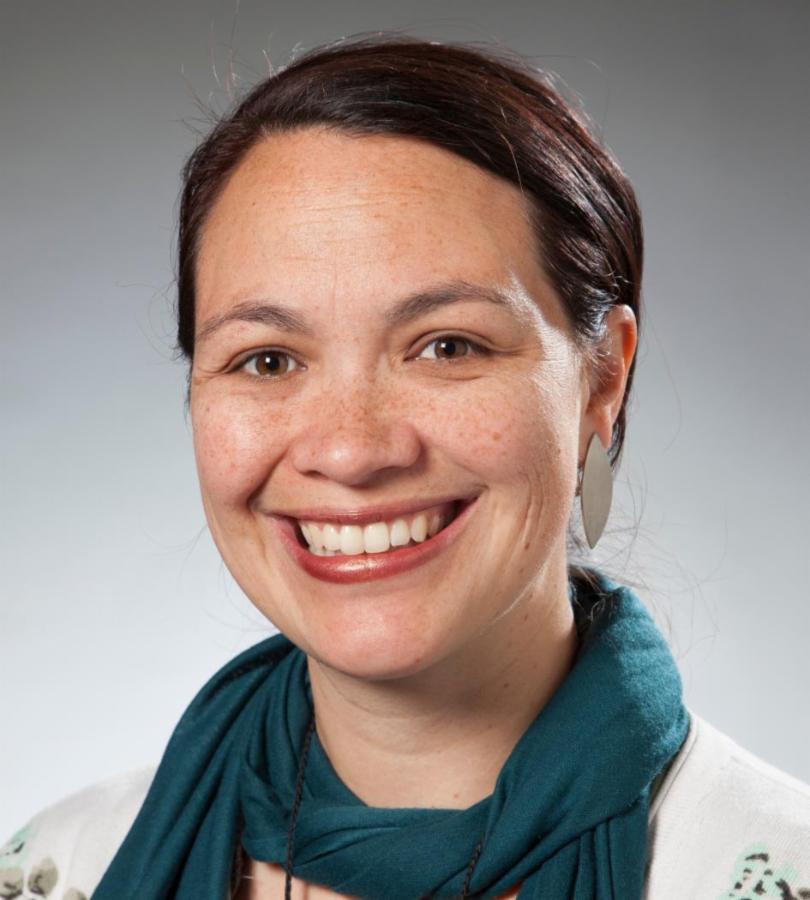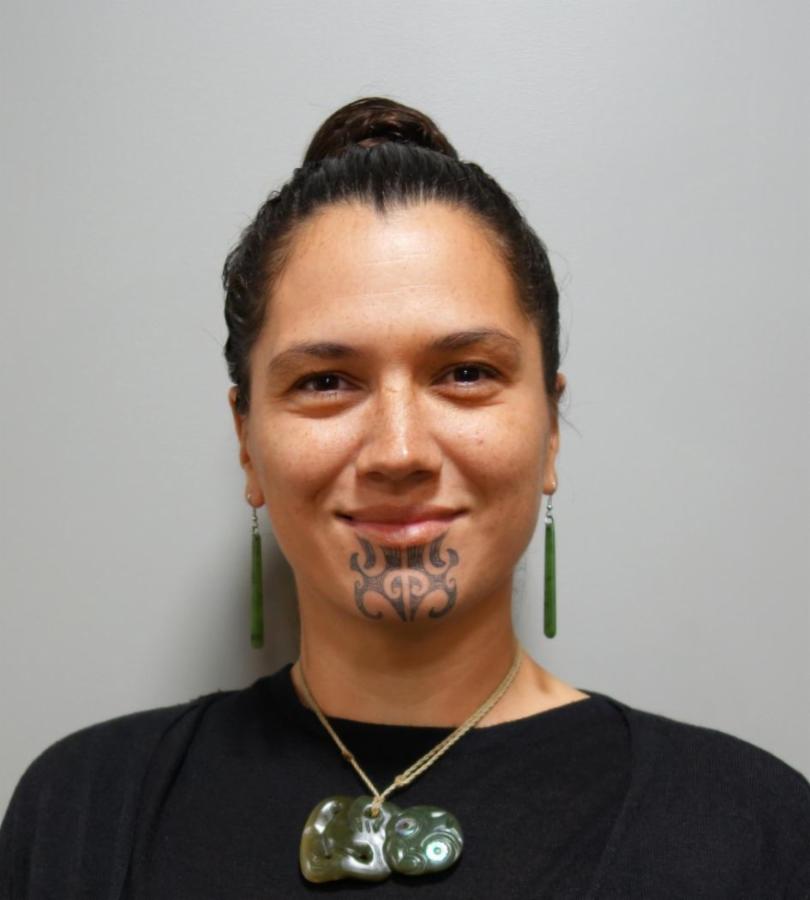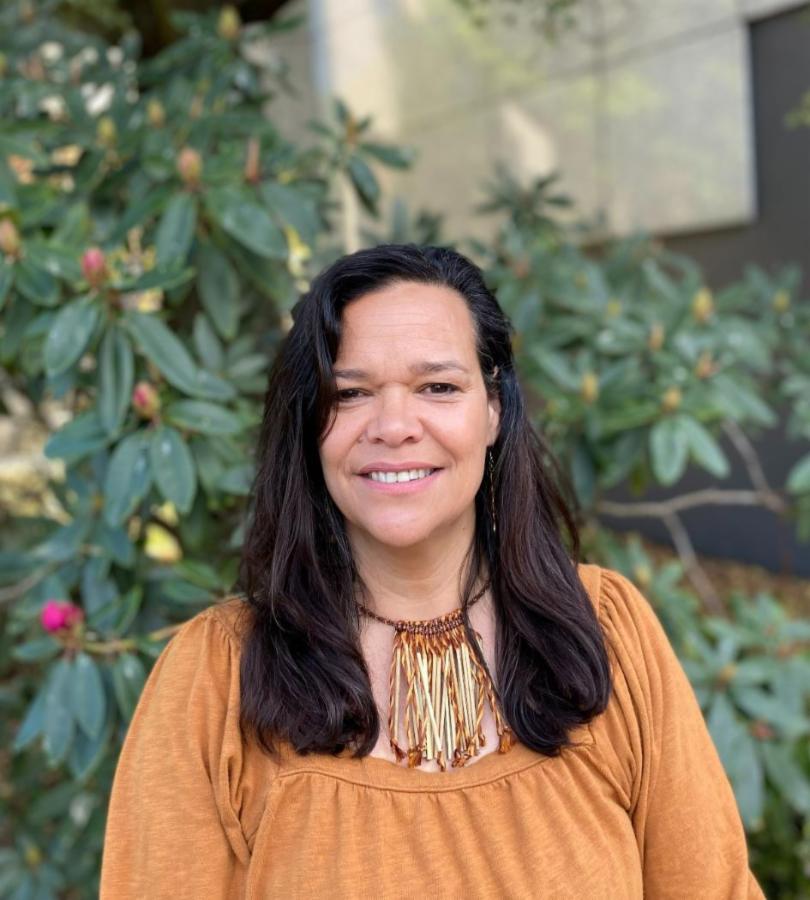Aumiri Pounamu is an exciting initiative that provides professional development opportunities for qualified early childhood, primary or secondary kaiako as well as tertiary educators who hold an adult teaching qualification.
It is a bilingual endorsement pathway that aims to develop Māori language, pedagogy and cultural knowledge. There are flexible study options to suit working kaiako teachers, including noho marae experiences, day wānanga, and night classes.
Qualifications
The Graduate Diploma in Māori and Language Pedagogies: Aumiri Pounamu (GradDipMLP) provides provisionally certified and practising kaiako teachers with the confidence to be educators of te ao Māori.
Our programme will help guide you to embed Māori knowledge and culture into your teaching at early, primary, and secondary schools. This includes te reo, tikanga Māori traditional culture, Aotearoa New Zealand history, and mātauranga Māori worldviews, such as sustainability and our role as kaitiakitanga protectors of the land.
The GradDipMLP requires 120 points of compulsory courses, which can be completed within 4 years of part-time study.
There are flexible options to suit working kaiako teachers, including noho marae experiences, day wānanga, and night classes.
Compulsory courses
- EDMI 311 Whakapiki te Reo (15 points)
- EDMI 312 Mātauraka Māori (15 points)
- EDMI 313 Te Marau ā-iwi (15 points)
- EDMI 315 Kaupapa Māori Pedagogies (15 points)
- EDMI 316 Whakapiki i te Reo 2 (15 points)
- EDMI 317 Rangahau Māori (Special interest research paper) (15 points)
- EDMI324 Special Topic: Te reo o te whenua tahi (15 points)
- EDMI325 Special Topic Te reo o te whenua rua (15 points)
The Graduate Certificate in Māori and Language Pedagogies: Aumiri Pounamu (GradCertMLP) gives our future and practising kaiako teachers the opportunity to develop their knowledge and confidence introducing our tamariki to the history, culture, and language of our indigenous communities.
This is valuable professional development for teachers who want to be mentors or leaders in Māori education within their centres, schools, or learning spaces, and beyond.
The (GradCertMLP) is a total of 60 points, made up by a 15-point compulsory course in introductory te reo proficiency, and a minimum of 45 points in elective courses.
Study is completed part-time within 2 years to accommodate working kaiako teachers, including noho marae experiences, day wānanga, and night classes.
Students may also apply to the Dean of Education to transfer their completed courses to the Graduate Diploma in Māori and Language Pedagogies: Aumiri Pounamu.
Compulsory course
- EDMI 311 Whakapiki te Reo (15 points)
Elective courses
Choose a minimum of 45 points from the following:
- EDMI 312 Mātauraka Māori (15 points)
- EDMI 313 Te Marau ā-iwi (15 points)
- EDMI 315 Kaupapa Māori Pedagogies (15 points)
- EDMI 316 Whakapiki i te Reo 2 (15 points)
- EDMI 317 Rangahau Māori (15 points)
- EDMI 324 Te reo o te whenua tahi (15 points)
- EDMI325 Te reo o te whenua rua (15 points)
Exit option from the diploma
The Graduate Certificate in Māori and Language Pedagogies: Aumiri Pounamu (GradCertMLP) can also be an exit option from the GradDipMLP. Undertaken in this way, the Certificate provides provisionally certified and practising kaiako teachers with developing confidence to be educators of te ao Māori.
The Graduate Certificate exit option of 60pts will help to embed Māori knowledge and culture into your teaching at early, primary, and secondary levels. This includes te reo Māori, tikanga Māori traditional culture, Aotearoa New Zealand history, and mātauranga Māori worldviews.
What are the courses?
Four courses are offered in 2024. They are term-based and bilingually delivered classes.
| COURSE | DATES | DESCRIPTION |
| EDMI311 Whakapiki te reo | 5 Feb – 14 Apr 2024 (Term 1) | Whakapiki te reo aims to increase the fluency of kaiako Te Reo and provide a wider range of conversational ability. Kaiako will be able to demonstrate an understanding of te reo Māori me nga tikanga-a-iwi applicable to a variety of learning contexts, and informal contacts with whanau and community. Assignments will focus on three key skills; speaking, writing and reading. |
| EDMI312 Matauraka Māori | 29 Apr – 7 July 2024 (Term 2) | This course is taught bilingually: in te reo Māori and English. It will critically examine Matauraka Māori: Māori ways of knowing and engaging with the environment in traditional and contemporary contexts as a means of developing a Kaupapa Māori based curriculum. Māori knowledge systems are valued and central to curriculum development. Students will also compare and contrast other indigenous epistemologies as frameworks for curriculum development in educational settings. The emphasis will be on Ngāi Tahu contexts and content. |
| EDMI313 Te Marau a-iwi | 22 July – 29 Sept 2024 (Term 3) | Te Marau a-iwi is delivered in a bilingual setting under the mana of Ngāi Tahu. It will focus on developing the curriculum knowledge of kaupapa Māori education documents such as Te Marautanga, Te Aho Matua, Te Whariki and others. This course seeks to develop a deeper understanding of kaupapa Māori theories, pedagogies through the use of kaupapa Māori educational frameworks. |
| EDMI324 Te reo o te whenua | 14 Oct– 8 Dec 2024 (Term 4) | Te reo o te whenua tahi aims to develop a working knowledge of Mātauraka Kāi Tahu and a higher level of proficiency in te reo Māori. Reo whakamihi (words of acknowledgement and gratitude) will be taught to use in both formal and informal settings as well as increasing everyday use of te reo Māori and appropriate enactment of tikanga Māori. |
| EDMI315 Kaupapa Māori Pedagogies | Not offered in 2024 | Kaupapa Māori pedagogies will explore indigenous ways of being, doing, thinking and transferring knowledge. This course will aid in understanding traditional Māori pedagogies, purakau and histories in order to approriately embed aspects of these traditional methods in our contemporary teaching and learning programmes. |
| EDMI316 Whakapiki i te reo 2 | Not offered in 2024 | Whakapiki i te reo 2 aims to increase the level of proficiency of kaiako in te reo Māori and will provide a wide range of conversational, contextual and academic language opportunities. Kaiako will be able to demonstrate an advanced understanding of te reo Māori me nga tikanga-a-iwi applicable to a variety of learning contexts, and informal contacts with whānau and community. The aim of the course is to increase the depth of knowledge and skill in spoken Māori language and also communicative teaching of Māori language. Students will have a greater understanding of matauranga Māori and tikanga Māori through the teaching and learning of te reo Māori. Knowledge of dialect and matauranga of the mana whenua will be threaded into this course. This course continues the study of the structure of the language and extends speaking skills and confidence. This will be taught predominantly in te reo Māori. |
| EDMI317 Rangahau Māori (Special interest research paper) | Not offered in 2024 | The Rangahau Māori, special interest paper encourages akonga to investigate a facet of tikanga Māori, te reo Māori or te ao Māori that they have a passion for or special interest in. This research paper empowers akonga to learn about kaupapa Māori theories and methodologies and embed these in their research. The delivery of this paper will be mostly self-directed, although two wananga (2x block days) will be a part of the course so that individual guidance and support can be offered to akonga pertaining to their research area. |
| EDMI325 Te reo o te whenua 2 | Not offered in 2024 | Te reo o te whenua rua aims to extend on working knowledge of Matauraka Kai Tahu and a higher level of proficiency in te reo Māori me ona tikanga. Reo whakamihi (words of acknowledgement and gratitude) will be taught to use in both formal and informal settings as well as increasing everyday use of te reo Māori and appropriate enactment of tikanga Maori. |
Are these courses for me?
The courses are for teachers who want to move from English medium to Māori medium teaching, or anyone who wants to really improve and strengthen their te reo Māori me ōna tikanga knowledge capacity. They are valuable for professional development and will assist teachers who are, or would like to be, mentors or leaders in the space of Māori education within their centres, schools or learning spaces.
How are the courses delivered?
Courses include a noho marae, 3-hour weekly night classes and block day wānanga sessions. There are seven wānanga day sessions in the first year.
Entry requirements
Students require a teaching qualification (early childhood, primary or secondary) or Adult Teaching qualification or equivalent.
An entry assessment (kōrero) to ascertain the level of te reo Māori fluency will occur, however this is not to put anyone off or rule any potential kaiako out, it is just to gauge reo capacity (this can be discussed with the programme coordinator).
How do I enrol?
You can apply online at myUC. Find out more about how to apply for graduate and postgraduate qualifications.
There will also be a hui with the Programme Coordinator as part of your application to assess your current level of te reo competency and ascertain the support you will need during study.
Contact us for more information about the courses and a kōrero.




